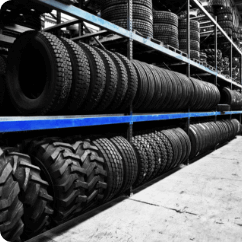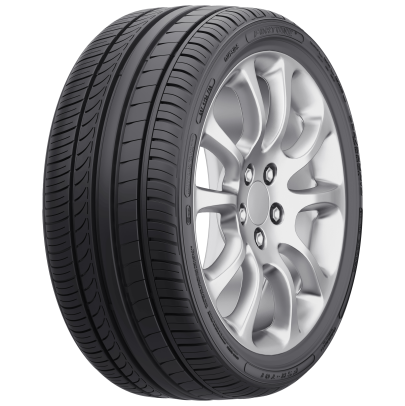User blogs
Tag Search
Visit Tire Country for All Your Summer Car Care Needs
The temperatures are finally warming up here in Connecticut and if feels like we went from winter straight to summer, that’s because we did. We’re now nearing 80 degree temperatures here in the state after weeks of cold rain and temperatures that reached even as low as 40 degrees.To get more news about summer car tires, you can visit gofortunetire.com official website.
With that long winter now behind us, it’s time to start thinking about how you can stay cool and comfortable and get full enjoyment out of the next few months.

While we pride ourselves on routine maintenance services and everything tires but want you to know that we offer more than just that. Especially with the summer months now heating up, be sure to stop by our shop for everything from car A/C repairs to propane refills! That’s right. We’ll help you to keep cool during heat waves and even cook up some burgers for the family!
Choosing Your Tires
So which tires are right for your car? The answer primarily depends on where you drive and how often. If you only travel in San Diego and similar Southern California areas, you will probably see better overall performance from summer tires. Similarly, you should choose summer tires for high-performance, racing, and luxury vehicles unless you plan to drive the vehicle in heavy winter conditions.
Regardless of which tire type works best for your location, vehicle, and lifestyle, look for new, high-quality tires that are designed for your vehicle type by a reputable manufacturer.
Better quality tires offer better overall performance in all weather conditions. Additionally, tire size and specifications can be just as important as tire type. For example, tires sized for a compact car would not perform well on an SUV or full-size truck.
Learn more about tire buying from our blog “Three Basic Questions and Answers About Buying Tires.”
Still not sure which tires are right for you? Consult with a tire specialist. Our professionals can weigh the needs of your vehicle against your desires to help you determine the best tire type for you.
Start the search for your new tires at Evans Tire & Service Centers. We offer high-quality choices for a wide variety of vehicles, including most makes, models, and vehicle classes. Get in touch with us today.
What’s the Difference Between Summer, Winter and All-Season Tires?
Drivers rarely think about tires until one goes flat or it’s time to buy new ones, and they may not know what type of tire their vehicle is driving on or if it’s the right fit, be it all-season tires or hardier winter tires or summer tires, which are designed for aggressive driving. Which is right for you?To get more news about summer car tires, you can visit gofortunetire.com official website.
All-season tires are by far the most popular tire type as original equipment on new vehicles and as replacement tires because they’re the most versatile and best suited to the needs of most drivers. Many performance cars, though, come with summer tires as standard equipment, and some drivers might be tempted to switch to summer tires when they buy new ones. Whether your vehicle is riding on all-seasons or summer tires, if you live in an area that sees cold temperatures and snow, you could hear a sales pitch to buy winter tires that perform better during those frigid months.

All-Season Tires
These tires are jacks of all trades but masters of none. They perform well enough in most situations that they can be used year-round whether the pavement is dry, wet or covered by snow, and they generally fall short only in severe driving conditions, such as deep snow or on a racetrack.
All-season tires usually have many grooves and sipes (small slits in the tread) that help them deal with a variety of conditions, such as rain, snow or hot pavement. They tend to last longer than other types, and better ones can come with tread-life guarantees of more than 50,000 miles. All-season tires tend to be quieter than performance tires because many drivers are looking for a tranquil ride; they also have low rolling resistance, which means they will yield higher fuel economy than the other types.
Compared to summer tires, though, all-season rubber won’t have as much grip in turns or steering precision and will have longer stopping distances. Summer performance tires grip like leeches, but all-season tires sacrifice some traction for a smoother, quieter ride and longer tread life. And when the snow gets deep or temperatures plunge below freezing, all-season tires won’t perform as well as winter tires.
Summer Tires
These are commonly installed on performance vehicles as original equipment because they prioritize traction above ride comfort and noise. These performance tires tend to have wider treads to put more rubber on the road and lower profiles (the height of the sidewall) to reduce sidewall flex in aggressive cornering and keep the tires firmly planted.
Summer tires enable the vehicle to carve through turns faster and with more control and provide shorter stops than all-season tires. They generally come with speed ratings of up to 186 mph, whereas all-season tires are usually rated for sustained speeds of 149 mph or less. Summer tires have shallower treads and fewer grooves than all-season tires, and they tend to wear faster because their tenacious grip leaves more rubber on the road. Somewhat surprisingly, tire manufacturers say summer tires perform better in wet conditions than all-season tires because they can disperse water more easily. Some summer tires also are unidirectional, meaning they can be mounted only on one side of a vehicle.
Winter Tires
Winter tires (also called snow tires) provide better traction in snow, on ice and in cold temperatures than either all-season or summer tires. They have deeper treads and more grooves that manage snow and slush better, with more sipes on the edges to improve traction on ice. Winter tires also use rubber compounds that are more pliable in cold weather, enabling them to maintain traction and braking performance.
Decades ago, snow tires had knobby tread designs (similar to off-road tires) and were designed to be mounted only on the drive wheels of rear-drive vehicles. Now, winter tires should be mounted on all four wheels, whether a vehicle has rear -, front- or all-wheel drive. They aren’t designed to be driven in summer weather because they lose grip and wear faster on hot pavement, so they should only be used when temperatures are consistently below about 40 degrees.
One important difference that summer and winter tires have from all-season tires is that most don’t have mileage-specific tread-life warranties, such as 50,000 miles. They are covered by workmanship and materials warranties for manufacturing defects. Michelin is one exception, but the mileage warranties are shorter for summer and winter tires: The brand gives its Primacy all-season tire a 55,000-mile warranty; for the Pilot Sport 4S summer tire and the Pilot Alpin winter tire, however, it’s only 30,000 miles.
In addition, winter tires are not rated under the Uniform Tire Quality Grading standard, a federal regulation in which the tire manufacturers assign a number rating for treadwear and letters for temperature resistance and traction.